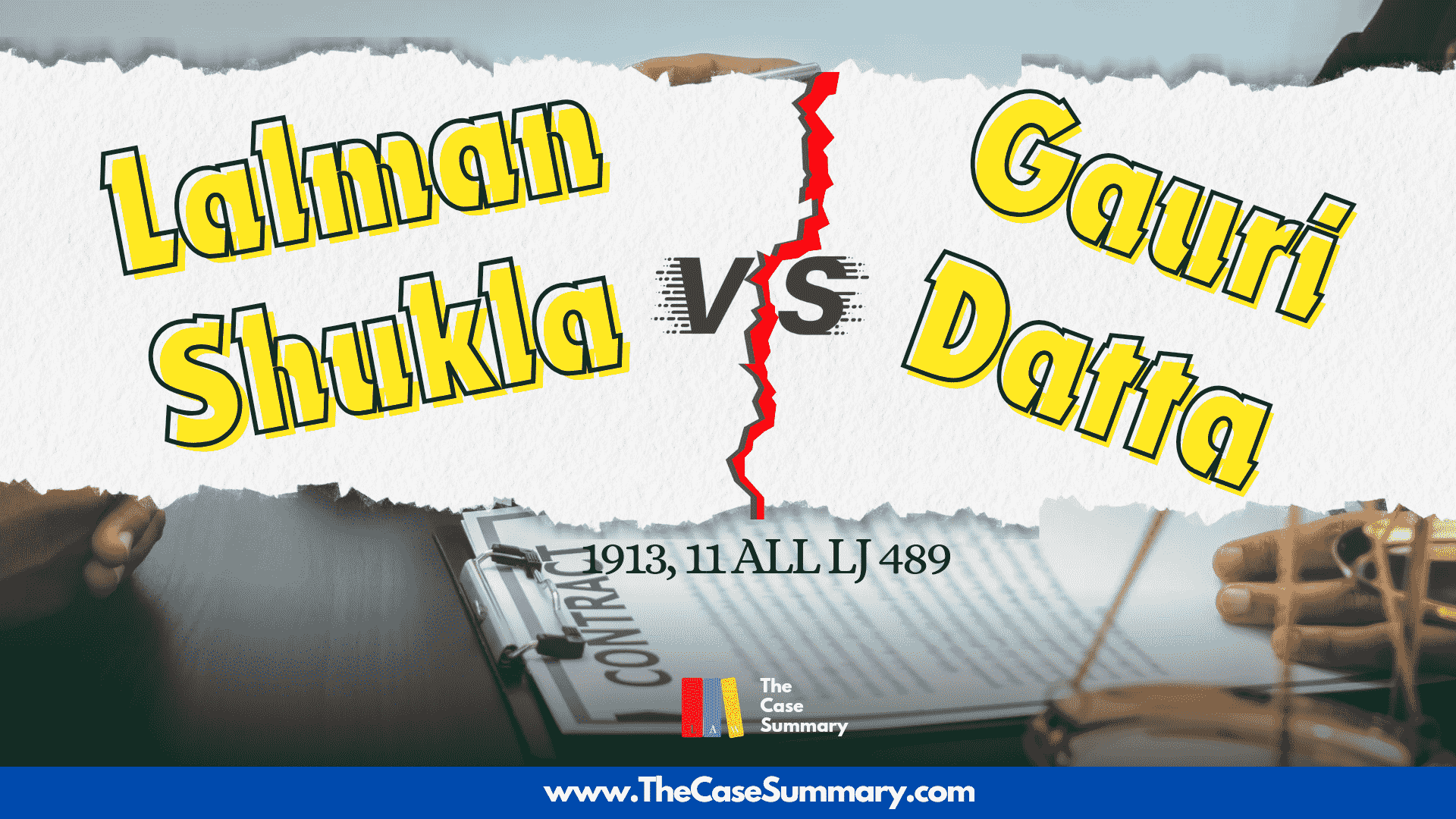Union Of India vs Maddala Thathiah
Citation: 1966 AIR 1724
Jurisdiction : India
Appellant : Union of India (Defendant in the court of first instance)
Respondent : Maddala Thathiah (Plaintiff in the court of first instance)
Facts :
The Dominion of India, through the General Manager of the Madras and Southern Mahratta Railway, invited tenders for supplying 14,000 imperial maunds of cane jaggery to railway grain shops for February and March 1948. The respondent submitted a tender, which included a clause allowing the administration to cancel the contract at any stage without claiming outstandings on the unexpired portion. The tender was accepted by a letter dated January 29, 1948, requesting a security deposit of Rs. 7,900/-. A follow-up letter on February 16, 1948, confirmed acceptance, subject to the respondent agreeing to the printed terms, including a specified delivery schedule.
Later, by a letter dated March 8, 1948, the Deputy General Manager cancelled the remaining supply and closed the contract. The respondent’s objections were rejected, and the administration relied on the cancellation clause. The respondent then filed a suit against the Union of India for breach of contract. The Trial Court dismissed the suit, upholding the administration’s right to cancel without liability. However, the High Court ruled that the cancellation clause was void and remanded the case to assess damages. The Union of India appealed this decision after obtaining special leave.
Issues :
1. Whether the appellant was legally obligated to purchase the entire 14,000 maunds of jaggery, or merely as much as was required, up to that maximum?
2. Whether the clause allowing unilateral termination by the administration at any stage was valid and enforceable in the context of a fixed quantity contract?
Arguments :
Appellant’s Arguments:
Under the terms of the contract, the appellant agreed to purchase only as much jaggery as required, up to a maximum of 14,000 maunds, and thus, was not legally bound to buy the full quantity. The respondent had expressly accepted the clause allowing the appellant to terminate the contract at any point, making the termination clause valid and binding as part of the contract.
Respondent’s Arguments:
The contract was for a fixed quantity of 14,000 maunds on specific dates (initially as per the order dated February 16, 1948, and later revised by the letter dated February 28), and the termination clause was inconsistent with the overall agreement. Even if valid, the respondent asserts the contract could only be cancelled for reasonable cause, not arbitrarily.
Decisions :
High Court’s Decision:
The High Court ruled that the cancellation clause was void and remanded the case to assess damages.
Supreme Court’s Decision:
The Supreme Court held that there was no binding contract at the stage of tender acceptance alone. The acceptance of the tender did not constitute a complete legal contract because no delivery dates were specified, and the issuance of a formal supply order was conditional upon payment of a security deposit. A binding contract was formed only upon issuance of a formal supply order, and the letter dated February 16, 1948, specifying the supply of 14,000 maunds of jaggery in four instalments constituted a binding and enforceable contract. The appellant had no right to cancel formally placed orders under the cancellation clause, as the cancellation power in paragraph 2 of the tender applied only to goods not yet ordered, not to those covered by a specific and confirmed supply order. Accordingly, the High Court’s decision was held to be correct and was therefore upheld.
The appeal was dismissed with costs, reinforcing the binding nature of the February 16, 1948, order and the invalidity of any claim to cancel the already confirmed order.
Relevant Laws :
- Law of Contract, 1872 (India)
Author :
1. Fuad Hasan
Note : The Case Summary is a platform by the law students, for the law students. We aim to summarize the facts and decisions of various important cases in both Bangla and English with utmost caution. However, this platform is in no way a replacement for going through the complete judgements by the law students and we discourage any learner from relying on case summaries alone. Thank you



